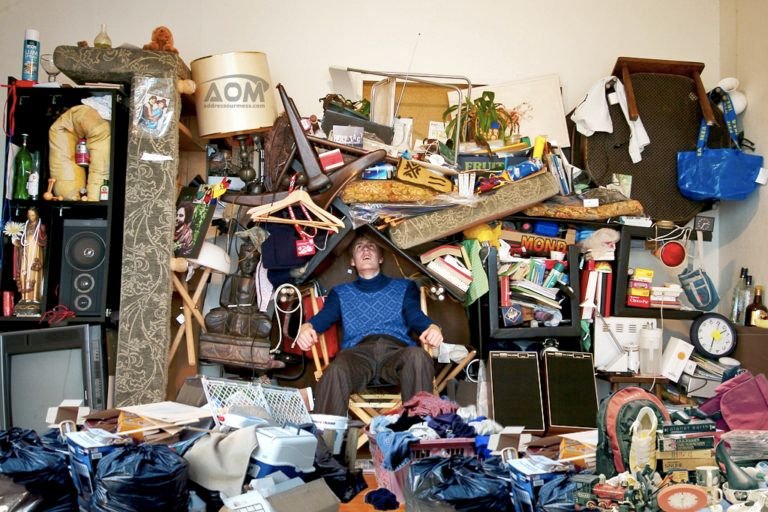A major conference on "hoarding disorder" will be held in Edinburgh later this year. The event will explore treatments and interventions for the condition, which involves people storing lots of items and cluttering up their homes. So-called experts say that the disorder can affect a person's health and well-being, but that it can also pose a public health problem and a serious fire risk. Hoarding disorder is defined as the urge to acquire unusually large amounts of possessions and an inability to get rid of those possessions even when they no longer have any use or monetary value. The World Health Organisation (WHO) recently classified hoarding as a mental health condition. It has been claimed that there are hundreds of thousands of "sufferers" in the UK. What total and utter monumental bollox. Sufferers? Mental health condition? We all know a hoarder right? Think about it and you'll find that you have an Aunt, Uncle, parent, brother or sister that has a house full of bric-a-brac, drawers bursting with worthless tat and garages full of boxes of God only knows what. It's an eccentricity, a quirk even. But it is absolutely NOT a mental health condition!
The UK's National Health Service, which takes orders from the WHO of course, claims among other things that hoarders might:
Find it hard to categorise or organise items
Have difficulties making decisions
Struggle to manage everyday tasks, such as cooking, cleaning and paying bills
Become extremely attached to items, refusing to let anyone touch or borrow them
Have poor relationships with family or friends
Yes this is absolutely crazy. I've known several serious hoarders in my lifetime. While undoubtedly eccentric, they did not have poor relationships with people nor did they have trouble cooking or paying bills. This is a nonsense but it is also very sinister. I strongly believe that what we have here is the latest example of Big Pharma taking everyday human behaviour, declaring it to be a psychological disorder and offering the cure. That is the real business of the worlds biggest pharmaceutical companies. They invent diseases and then present their drugs as the answer. If you can pick up a copy, I recommend a book called Disease-Mongers: How Doctors, Drug Companies, and Insurers Are Making You Feel Sick. It was written in 1992 by Lynn Payer who wrote that Big Pharma's sole purpose was to "convince essentially well people that they are sick, or slightly sick people that they are very ill.”
The broadcast media is all over this today, presenting "sufferers" who say that "hoarding" had taken over their lives but that they are so thankful now to have the support and treatment. And of course the treatment involves taking various antidepressants or SSRI ( Selective serotonin reuptake inhibitors) drugs. The media has amnesia. Back in 2006, David Henry and Ray Moynihan (researchers at Newcastle University, Australia) published a groundbreaking report. It found that:
"Disease-mongering is the selling of sickness that widens the boundaries of illness and grows the markets for those who sell and deliver treatments. It is exemplified mostly explicitly by many pharmaceutical industry-funded disease awareness campaigns - more often designed to sell drugs than to illuminate or to inform or educate about the prevention of illness or the maintenance of health."
They hit the nail on the head with pharma-funded disease awareness campaigns eh? It has been one giant infomercial across the UK's national and commercial TV and radio stations this morning. Sadly in this era of victimhood, narcissism and trigger warnings, there will be those who are all too happy to self-identify as hoarders. They'll happily pop the pills and use their diagnosis to cover all manner of sins, bad behaviour or whatever suits them at the time.